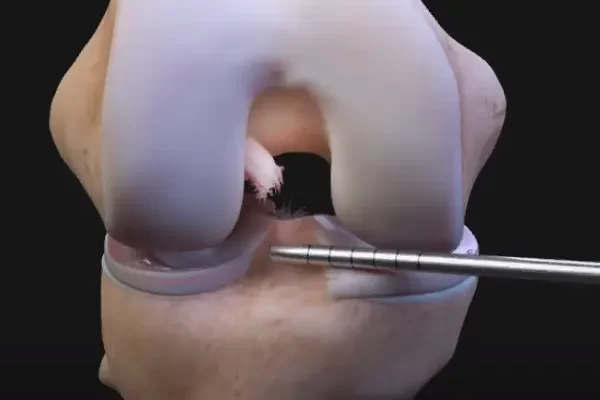After having surgery to reconstruct the Anterior Cruciate Ligament (ACL), it is crucial to get a restful night’s sleep to aid in healing and recovery. However, the discomfort, pain, and restricted movement that occur after the surgery can make it difficult to obtain sufficient rest. To improve sleep quality following ACL reconstruction surgery, there are various techniques you can use:
- Pain management: Pain is a common issue following ACL surgery. Taking prescribed pain medication as directed by your doctor before bed can help alleviate any discomfort that may hinder your ability to sleep. However, be sure to consult your healthcare provider for the appropriate medication and dosages.
- Elevation and ice: Elevating your leg and applying ice to the surgical site can reduce swelling and pain, making it easier to fall asleep. Remember to use a proper ice pack or wrap the ice in a towel to avoid direct contact with your skin and potential frostbite.
- Sleep position: Finding a comfortable sleep position that minimizes strain on your surgical leg is crucial. Consider using pillows to prop up your leg in a position recommended by your healthcare provider.
- Proper support: Investing in a supportive mattress and pillows can go a long way in promoting better sleep quality. Look for a mattress that offers adequate pressure relief and support for your body, helping to optimize comfort and minimize pain.
- Create a sleep-friendly environment: Ensure your bedroom is conducive to sleep. Dim the lights, block out external noise with earplugs or white noise machines if needed, and maintain a cool and comfortable temperature.
- Establish a bedtime routine: Establishing a regular bedtime routine signals to your body that it’s time to wind down and sleep. Engage in activities that promote relaxation, such as reading a book, taking a warm bath, or practicing gentle stretching.
- Schedule pain medication: If your pain medication wears off during the night, it may disrupt your sleep. Coordinate with your healthcare provider to schedule your pain medication accordingly, ensuring a more restful night.
- Supportive devices: In some cases, your healthcare provider may recommend using supportive devices such as a knee brace or crutches during the initial recovery period. Make sure you understand how to properly use these aids to minimize any discomfort during sleep.
- Ensure good sleep hygiene: Prioritize sleep hygiene practices to enhance your sleep quality. This includes avoiding stimulating activities before bed (such as viewing electronic screens), limiting caffeine intake, and maintaining a consistent sleep schedule.
It is important to note that each individual’s recovery from ACL reconstruction surgery is unique, thus it is crucial to seek advice from your healthcare professional to receive personalized recommendations on how to improve your sleep. By following their guidance and employing these techniques, you can ensure a comfortable rest and support your body’s healing process.









